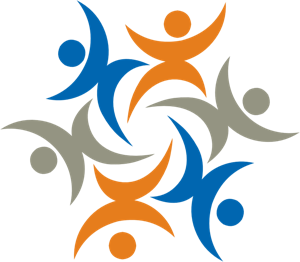
33rd Annual Boston International Trauma Conference
PSYCHOLOGICAL TRAUMA: NEUROSCIENCE, EMBODIMENT AND THE RESTORATION OF THE SELF
May 18 - 21, 2022
REAL, THREE DIMENSIONAL, ON THE GROUND, IN-PERSON AS WELL AS VIRTUAL
Trauma research foundation and Bessel van der Kolk are delighted to announce the 33rd annual trauma conference
For the 33rd year, Bessel van der Kolk hosts some of the world’s most innovative leaders from the field of trauma, attachment, neuroscience, mindfulness, body oriented work and psychedelic studies.
The study of trauma has probably been the single most fertile area in helping to develop a deeper understanding of the relationship among the emotional, cognitive, social and biological forces that shape human development. Starting with post-traumatic stress disorder (PTSD) in adults and expanding into early attachment and overwhelming attachment and social experiences in childhood (“Developmental Trauma”), this endeavor has elucidated how certain
experiences can “set” psychological expectations, bodily experiences and biological selectivity.
When addressing the problems of traumatized people who, in a myriad of ways, continue to react to current experiences as a replay of the past, there is a need for therapeutic methods that do not depend exclusively on drugs, talk or understanding. We have learned that most experience is automatically processed on a subcortical level of the brain; i.e., by “unconscious” interpretations that take place outside of conscious awareness. Insight and good intentions only have a limited influence on the operation of these subcortical processes, but synchrony, movement and reparative experiences do. This conference will present both basic research about the impact of trauma over the life cycle, and a range of effective interventions that are being practiced in clinics, schools, prisons, families, and communities around the world.
JOIN US LIVE Online AND In-Person
Objectives
- The main objective of this conference is to present current understanding of how people’s minds, brains, bodies and social organizations respond to traumatic experiences, and what currently appear to be the optimal clinical interventions, including the role of relationships, movement, synchrony, justice and processing to protect and restore safety and regulation.
- Central is the role of affect regulation and the resolution of misinterpretation of innocuous stimuli as threats, which require interventions that can restore a sense of active mastery and the capacity to mindfully focus on the demands of the present.
- We will also explore how different populations, ethnic groups and cultures may deal differently with traumatic experiences, and address how the legacy of trauma, systematic discrimination, isolation, blame, and social inequality can have profound effects on the capacity to cope and recover from trauma.
Seaport Hotel, Boston
Join us in person as we host the conference live in Boston!
Virtual - Join from Home
Register to join us online from all over the world.
May 18th - 21st 2022
Save the date in your calendar.
Limited spaces available
JOIN US WITH...

Bessel A. van der Kolk, MD
Presentation: What We Have Learned in Three Decades of Explorations in Trauma: A New Road Map
Bessel van der Kolk, MD, is a clinician, researcher, and teacher best known for his work with posttraumatic stress. Active in the field of mental health since the 1970s, he currently serves as medical director at the Trauma Center in Boston.
Internationally and throughout the United States, van der Kolk has worked as a lecturer, teacher, and professor. He previously served as President of the International Society for Traumatic Stress Studies and as a co-director of the National Center for Child Traumatic Stress Complex Trauma Network. He teaches psychiatry at the Boston University Medical School and continues to work as a clinician in his Boston-area private practice.
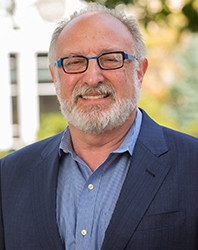
Martin H. Teicher MD, PhD
Presentation: Effects of Childhood Maltreatment on Brain Development and Psychopathology:
Key Principles
About: Martin Teicher, MD, PhD, has been director of the Developmental Biopsychiatry Research Program at McLean Hospital since 1988. He was director of the former Developmental Psychopharmacology Laboratory (now the Laboratory of Developmental Neuropharmacology), and is currently an associate professor of psychiatry at Harvard Medical School.
Dr. Teicher is a member of the editorial board of the Journal of Child and Adolescent Psychopharmacology, Current Pediatric Reviews, and Current Psychosomatic Medicine. He is a member of the Scientific Advisory Council of the Juvenile Bipolar Research Foundation and has been part of Harvard University’s Brain Development Working Group. He has served on or chaired numerous review committees for the National Institutes of Health, published more than 150 articles, and has received numerous honors.

Rachel Yehuda, PhD
Presentation: Psychedelic-Assisted Therapy for Trauma and Intergenerational Trauma
About: Rachel Yehuda, PhD, Professor of Psychiatry and Neuroscience, is the Director of the Center for Psychedelic Psychotherapy and Trauma Research. She is also Director of the Traumatic Stress Studies Division at the Mount Sinai School of Medicine which includes the PTSD clinical research program and the Neurochemistry and Neuroendocrinology laboratory at the James J. Peters Veterans Affairs Medical Center. Dr. Yehuda is a recognized leader in the field of traumatic stress studies.
She has authored more than 450 published papers, chapters, and books in the field of traumatic stress and the neurobiology of PTSD. Her current interests include the study of risk and resilience factors, psychological and biological predictors of treatment response in PTSD, genetic and epigenetic studies of PTSD and the intergenerational transmission of trauma and PTSD. She has an active federally-funded clinical and research program that welcomes local and international students and clinicians.

Ruth Lanius, MD, PhD
Presentation: The Restoration of the Hijacked Self: Overcoming Shock and Terror
About: Ruth Lanius, MD, PhD, Professor of Psychiatry is the director of the posttraumatic stress disorder (PTSD) research unit at the University of Western Ontario. She established the Traumatic Stress Service and the Traumatic Stress Service Workplace Program, services that specialize in the treatment and research of Posttraumatic Stress Disorder (PTSD) and related comorbid disorders. She currently holds the Harris-Woodman Chair in Mind-Body Medicine at the Schulich School of Medicine & Dentistry at the University of Western Ontario.
Her research interests focus on studying the neurobiology of PTSD and treatment outcome research examining various pharmacological and psychotherapeutic methods. She has authored more than 100 published papers and chapters in the field of traumatic stress and is currently funded by several federal funding agencies. She regularly lectures on the topic of PTSD nationally and internationally. She has recently published a book ‘The Impact of Early Life Trauma on Health and Disease’ with Eric Vermetten and Clare Pain.

Andrew Meltzoff , PhD
Presentation: Imitation , Mirroring and the Development of Self
About: Dr. Andrew N. Meltzoff holds the Job and Gertrud Tamaki Endowed Chair in Psychology and is the Co-Director of the University of Washington’s Institute for Learning & Brain Sciences. A graduate of Harvard, with a PhD from Oxford, he is an internationally renowned expert on infant and child development. His discoveries about infant imitation helped transform our understanding of early cognition and social learning and sparked experiments on infant neural body maps in developmental cognitive neuroscience. His research on preschoolers’ social biases and children’s STEM-gender stereotypes has helped build bridges between developmental and social psychology. His recent work on infant altruism continues to expand these interdisciplinary connections.
Meltzoff’s research on young children has had implications for cognitive psychology, especially concerning memory and intentionality; for brain science, especially for multimodal coding and shared neural circuits for perception and action; and for educational science, concerning the impact of role models and cultural stereotypes on child development. Meltzoff’s ‘Like-Me’ framework for social development, which holds that young children seek out and register other social beings as ‘like me,’ has engendered empirical and theoretical work in autism spectrum disorder, social robotics, developmental cognitive neuroscience, and philosophy of mind.
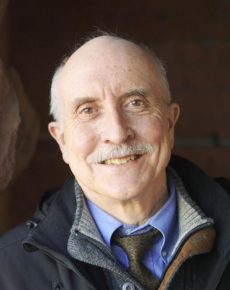
Alex Sabo, MD
Presentation: How is the Pandemic Affecting Families, Communities, and Our Sense of Self?
About: Dr. Alex N. Sabo is a psychiatrist in Pittsfield, Massachusetts and is affiliated with Berkshire Medical Center. He received his medical degree from UMass Chan Medical School and has been in practice for more than 20 years.

Esther Perel, MA, LMFT
Presentation: The Effects of Trauma on Intimacy and Sexuality in Couples
About: Esther Perel is a Belgian psychotherapist of Polish-Jewish descent who has explored the tension between the need for security (love, belonging, and closeness) and the need for freedom (erotic desire, adventure, and distance) in human relationships.
Perel promoted the concept of “erotic intelligence” in her book Mating in Captivity: Unlocking Erotic Intelligence, which has been translated into 24 languages. After publishing the book, she became an international advisor on sex and relationships. She gave a TED talk in February 2013 called “The secret to desire in a long-term relationship”, and another in March 2015 called “Rethinking infidelity … a talk for anyone who has ever loved.”
Perel is the host of the podcast “Where Should We Begin?”, which is based inside her therapist’s office as she sees anonymous couples in search of insight into topics such as infidelity, sexlessness, and grief.
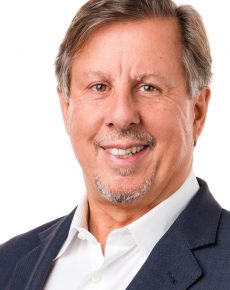
Richard Schwartz, PhD
Presentation: All Parts are Welcome, Internal Family Systems Therapy (IFS)
About: Richard Schwartz began his career as a systemic family therapist and an academic. Grounded in systems thinking, Dr. Schwartz developed Internal Family Systems (IFS) in response to clients’ descriptions of various parts within themselves. He focused on the relationships among these parts and noticed that there were systemic patterns to the way they were organized across clients. He also found that when the clients’ parts felt safe and were allowed to relax, the clients would experience spontaneously the qualities of confidence, openness, and compassion that Dr. Schwartz came to call the Self. He found that when in that state of Self, clients would know how to heal their parts.
A featured speaker for national professional organizations, Dr. Schwartz has published many books and over fifty articles about IFS.

Laurence Heller, PhD
Presentation: How to work with the interplay of Shame, Self Hatred, and Complex Trauma: An Introduction to the NeuroAffective Relational Model©️
About: Laurence Heller, Ph.D developed the NeuroAffective Relational Model® known as NARM®. Dr. Heller is also the founder of the NARM Training Institute.
He has 40 years of clinical experience and has been leading trainings for psychotherapists for much of that time. He has developed an innovative psychotherapy which integrates elements from Attachment Theory, somatic psychotherapies, Object Relations Theory and non-western traditions, creating a unique psychotherapy model that is non-regressive, non-interpretive, present moment oriented and works in a unique way with a client’s personal history: The NARM model is based on the premise that it is the persistence of once life-saving adaptive survival style mechanisms not the trauma itself that creates symptoms.
Dr. Heller is the co-author of Healing Developmental Trauma, published in English and 14 other languages as well as the co-author of the Practical Guide to Healing Developmental Trauma to be published in July, 2022 as well as two other books on psychotherapy.
He and NARM teachers that he trained run trainings online, throughout the USA and in most European countries.:
Michael Niconchuk, MSc
Presentation: The Field Guide for Barefoot Psychology: Making Psychoeducation and Healing Relevant and Scalable across Cultures
About: Michael Niconchuk is an applied neuroscience researcher and practitioner focusing on trauma recovery in conflict-affected populations, and the relationship between trauma, extremism, intergroup violence. Mike is the Program Director for Trauma & Violent Conflict at Beyond Conflict as well as the Senior Technical Expert for Mental Health and Psychosocial Support at Questscope in Amman, Jordan.
Michael is the author of several innovative scientific publications on issues of neuroscience, violent extremism and intergroup conflict, and is the author of The Field Guide for Barefoot Psychology, a psychoeducational and trauma recovery program for communities affected by trauma and forced displacement.
Michael is a former Fulbright Scholar and holds degrees from Tufts University and University College London.
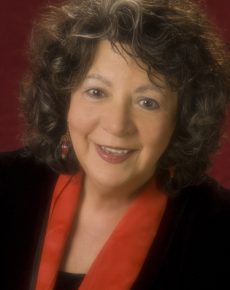
Janina Fisher, PhD
Presentation: Implementing Trauma Informed Therapies in Community and Hospital Settings
in Low Income Settings
About: Janina Fisher, PhD, is a licensed clinical psychologist and former instructor at The Trauma Center, a research and treatment center founded by Bessel van der Kolk. Known as an expert on the treatment of trauma, Dr. Fisher has also been treating individuals, couples and families since 1980.
She is past president of the New England Society for the Treatment of Trauma and Dissociation, an EMDR International Association Credit Provider, Assistant Educational Director of the Sensorimotor Psychotherapy Institute, and a former Instructor, Harvard Medical School. Dr. Fisher lectures and teaches nationally and internationally on topics related to the integration of the neurobiological research and newer trauma treatment paradigms into traditional therapeutic modalities.
She is author of the bestselling Transforming the Living Legacy of Trauma: A Workbook for Survivors and Therapists (2021), Healing the Fragmented Selves of Trauma Survivors: Overcoming Internal Self-Alienation (2017), and co-author with Pat Ogden of Sensorimotor Psychotherapy: Interventions for Attachment and Trauma.(2015).

Bandy Lee, MD
Presentation: Therapy, Justice and Professional Responsibility
About: Bandy Xenobia Lee is an American psychiatrist whose scholarly work includes the writing of a comprehensive textbook on violence. She is a specialist in public health approaches to violence prevention who consulted with the World Health Organization and initiated reforms at New York’s Rikers Island Correctional Facility.
She helped draft the United Nations chapter on “Violence Against Children, leads a project group for the World Health Organization’s Violence Prevention Alliance, and has contributed to prison reform in the United States and around the world. She taught at Yale School of Medicine and Yale Law School from 2003 through 2020.

Judith Herman, MD
Presentation: Therapy, Justice and Professional Responsibility
About: Judith Herman is an American psychiatrist, researcher, teacher, and author who has focused on the understanding and treatment of incest and traumatic stress.
Herman is a Professor of clinical psychiatry at Harvard University Medical School and Director of Training at the Victims of Violence Program in the Department of Psychiatry at the Cambridge Health Alliance in Cambridge, Massachusetts, and a founding member of the Women’s Mental Health Collective.
She was the recipient of the 1996 Lifetime Achievement Award from the International Society for Traumatic Stress Studies and the 2000 Woman in Science Award from the American Medical Women’s Association. In 2003 she was named a Distinguished Fellow of the American Psychiatric Association.
Friday, May 20, 2022
- 08:00 – 08:30 a.m. - Registration
- 08:30 – 09:00 a.m. - What We Have Learned in Three Decades of Explorations in Trauma: A New Road Map with Bessel A. van der Kolk, MD
- 09:00 - 10:15 a.m. - Effects of Childhood Maltreatment on Brain Development and Psychopathology: Key Principles with Martin H. Teicher MD, PhD
- 10:15 – 10:30 a.m. - Coffee Break
- 10:30 - 11:15 a.m. - Psychedelic-Assisted Therapy for Trauma and Intergenerational Trauma with Rachel Yehuda, PhD
- 11:15 - 12:00 p.m. - Restoring the Hijacked Self: Overcoming Shock and Terror with Ruth Lanius, MD, PhD
- 12:00 -12:30 p.m. - Panel Discussion & Questions - Faculty & Conference Participants
- 12:30 - 01:30 p.m. - Lunch
- 12:45 – 01:15 p.m. - Optional Chair Yoga with Josefin Wikstrom
- 01:45 – 03:00 p.m. - Imitation , Mirroring and the Development of Self with Andrew Meltzoff, PhD and Ed Tronick PhD, discussant.
- 03:00 – 03:45 p.m. - How is the Pandemic Affecting Families, Communities, and Our Sense of Self? with Alex Sabo, MD
- 03:45 -04:00 p.m. - Panel Discussion & Questions - Faculty & Conference Participants
- 04:00p.m. - 04:15 p.m. - Coffee Break
- 04:15p.m. – 05:15 p.m. - The Effects of Trauma on Intimacy and Sexuality in Couples with Esther Perel, MA, LMFT
- 05:15 – 05:30 p.m. – Q&A
Saturday, May 21, 2022
- 08:00 – 8:30 a.m. - Registration
- 08:30 - 09:30 a.m. - All Parts are Welcome, Internal Family Systems Therapy (IFS) with Richard Schwartz, PhD and Discussant Tania Singer
- 09:30 -10:15 a.m. - How to Work with the Interplay of Shame, Self-Hatred, and Complex Trauma: An Introduction to the NeuroAffective Relational Model© with Laurence Heller, PhD
- 10:15 - 10:30 a.m. - Coffee Break
- 10:30 – 11:30 a.m. - The Field Guide for Barefoot Psychology: Making Psychoeducation and Healing Relevant and Scalable across Cultures with Michael Niconchuk, MSc
- 11:30 - 11:45 a.m. - Discussion: Morning Speakers + Audience
- 11:45 - 12:45 p.m. - Lunch
- 12:00 - 12:30 p.m. - Optional Chair Yoga with Josefin Wikstrom
- 01:00 - 01:45 p.m. - Implementing Trauma Informed Therapies in Community and Hospital Settings in Low Income Settings with Janina Fisher, PhD
- 01:45 – 02:45 p.m. - Therapy, Justice and Professional Responsibility with Bandy Lee, MD
- 02:45 – 03:00 p.m. - Panel Discussion & Questions - Faculty & Conference Participants with Bandy Lee, MD & Judith Herman, MD
- 03:00 - 03:45 p.m. - Closing Ceremony Quaker Meeting
PRE-CONFERENCE WORKSHOP SCHEDULE
Wednesday, May 18, 2022
TRACK 1: EXPERIENTIAL INTERVENTIONS
- 08:30 a.m. - 12:30 p.m. - Play-based Healing with Children and Adolescents with Dafna Lender, Lou Bergholz, Margaret Blaustein
- 01:30 p.m. - 05:30 p.m. - Using Shakespeare's Work to Transform the Legacy of Helplessness, Shame and Humiliation with Licia Sky, Jack Saul, Kevin Coleman, James Gilligan, Stephan Wolfert, Dawn Stern, Bessel van der Kolk, Leslie Salmon Jones, Jeff W. Jones
TRACK 2: NEUROPLASTICITY; NEUROFEEDBACK AND MINDFULNESS
- 08:30 a.m. - 12:30 p.m. - Neuroplasticity - Neurofeedback for Developmental Trauma: Principles and Applications in Real Life Settings with Ruth Lanius, Sebern Fisher, Bernhard Wandernoth, Meike Wiedemann, Patricia Vickers, Matt Fleishman, Angelika Sadar, Deirdre Stewart, Paul Frewen
- 01:30 p.m. - 05:30 p.m. - Neurofeedback and Mindfulness - From Empathic Distress to Compassion: Building Resilience in the Face of Trauma with Tania Singer and Ron Siegel
EVENING PERFORMANCE
- 07:30 p.m. - 09:00 p.m. - World Premier: Live Performance of “Make Thick My Blood”, directed by Alexandra Beller, featuring Stephan Wolfert and Dawn Stern
Thursday, May 19, 2022
TRACK 1: PSYCHEDELICS AND NEUROSCIENCE
- 08:30 a.m. - 12:30 p.m. - Psychedelics - The Use of Mind-Altering Substances- MDMA, Psilocybin, and Marijuana for Treating PTSD and Other Mental Distress with Michael Mithoefer, Ismail Ali, Brian Richards, Gita Vaid, Rachel Yehuda, Rick Doblin, Anne Wagner, Jim Hopper, Elizabeth Call, Susan Walker, Francis Guerriero , Michael Alpert, Bessel van der Kolk
- 01:30 p.m. - 05:30 p.m. - Neuroscience - How Neuroscience Can Inform Clinical Practice with Ruth Lanius, Braeden Terpou, Sherain Harricharan, Andrew Nicholson, Daniela Rabellino, Lauren Lebois, Shoshana Krohner, Scott McKernan, Olivia Resto, Sarah Beranbaum, Wendy D’Andrea
TRACK 2: FULL DAY SESSION – EXPRESSIVE THERAPIES
- 08:30 a.m. - 05:30 p.m. - Expressive and Sensory-Based Approaches: Translating Trauma Research into Innovative Treatments with Cathy Malchiodi
TRACK 3: FULL DAY SESSION – SENSORY INTEGRATION
- 08:30 a.m. - 05:30 p.m. - A Return to Embodied Learning: Explore SMART Foundations and Beyond with Alexandra Cook, Elizabeth Warner, Anne Westcott, Heather Finn, Sherain Harricharan
EVENING PERFORMANCE
- 07:30 p.m. - 09:00 p.m. - Afro Flow Yoga: Live Music, Meditation, Yoga and Dance of the African Diaspora. Connect with Earth, Sky, and Heart in an Inclusive and Diverse Circle of Non-Judgment with Leslie Salmon Jones and Jeff W. Jones
5:30 PM – 7:00 PM
Friday, May 20, 2022 – Poster Sessions
We invite you to share your work in a Science Fair-style session.
All types of projects and career levels are welcome: qualitative and quantitative research, case studies, program evaluation, etc. Students can elect to have their posters judged for the International Trauma Conference Poster Award.
To participate, please email your title and abstract (200 words or less) to Wendy D’Andrea, PhD: [email protected] by April 15th. You will receive poster instructions after receipt of your submission.
PRE-CONFERENCE WORKSHOPS – MAY 18-19, 2022
Wednesday, May 18, 2022
Track 1: Experiential Interventions
Play-Based Healing with Children and Adolescents
- 08:30 AM - 12:30 PM ET
- Dafna Lender
- Lou Bergholz
- Margaret Blaustein
Margaret Blaustein, Lou Bergholz and Dafna Lender present a magical morning of learning, collaboration, and play! Children all need to feel safe in order to develop and connect to others. The quickest and most powerful way to get to transformative moments with children is through play— meaning interactive, face-to-face, reciprocal, cooperative interactions that rely on movement, rhythm, touch, a prosodic voice, and eye contact. The more a child learns that it’s pleasurable and safe to be completely caught up in a moment of shared joy or attention with another person, the deeper sense of connection. We’ll explore principles and techniques that underpin playful design to help facilitate connection, nurture meaningful choices
“There's nothing more powerful in 'your moment of truth' than people owning their truth, their part in a situation."
Lou Bergholz
“As long as you keep secrets and suppress information, you are fundamentally at war with yourself… The critical issue is allowing yourself to know what you know. That takes an enormous amount of courage."
Bessel van der Kolk
Embodiment, Theater and Using Shakespeare to Organize Traumatized Minds and Bodies
- 01:30 PM - 05:30 PM ET
- Licia Sky
- Kevin Coleman
- James Gilligan
- Stephan Wolfert
- Dawn Stern
- Bessel van der Kolk
- Leslie Salmon Jones
- Jeff W. Jones
- Jack Saul
In this context Shakespeare’s plays have proven to be among the most insightful sources for understanding human nature and human psychology. When we work with trauma and violence we meet contemporary reincarnations of Macbeth, Othello, Richard III, who show us how violence is rooted in overwhelming shame and humiliation that they tried to bring to an end except by destroying the world around them.
The day will be capped off with the world premiere performance of “Make Thick My Blood”, an adaptation of Macbeth by Stephan Wolfert and Dawn Stern, which involves active audience participation and which experientially illustrates how theater can be adapted to healing.
Wednesday, May 18, 2022
Track 2: Neuroplasticity; Neurofeedback and Mindfulness
Neurofeedback for Developmental Trauma: Principles and Applications in Real Life Settings
- 08:30 AM - 12:30 PM ET
- Ruth Lanius
- Sebern Fisher
- Bernhard Wandernoth
- Meike Wiedemann
- Matt Fleischman
- Angelika Sadar
- Deirdre Stewart
- Patricia Vickers
- Paul Frewen
Understanding that trauma alters and dysregulates brain activity opens up new state of the art methods of treatment which directly target disturbed neuronal pathways. One such treatment, Neurofeedback, leverages recent research results that relate neuronal pathways and brain areas affected by the trauma with executive functioning, safety, sense of self, different self-states, bodily based aspects (e.g. physical balance, movement, voice modulation, interoceptive sensations) shame and agency.
This experiential workshop brings together researchers, clinicians and neurofeedback practitioners who are exploring ways in which we can apply the neuroscience of trauma to clinical practice by integrating it with psychotherapy, biofeedback, bodywork and mindfulness in residential treatment centers, school systems and in private practice. The workshop will start with an explanation of the basics of neurofeedback and review the existing research with practical implications. Next, the impact of neurofeedback on Developmental Trauma by calming down the fear-driven brain and improving emotion regulation. The major part of the workshop will be dedicated to integrating neurofeedback into clinical settings for currently underserved populations.
“Evidence with neurofeedback suggests that trauma-informed treatment should also be brain-informed treatment- and not just to know that the brain is an issue, but to work with it directly.”
Sebern Fisher
"A lack of compassion is arguably the cause of humankind's biggest failures."
Tania Singer
From Empathic Distress to Compassion: Building Resilience in the Face of Trauma
- 01:30 PM - 05:30 PM ET
- Tania Singer
- Ron Siegel
Mindfulness and compassion practices are powerful tools for both psychotherapists and their clients. These practices can help us maintain therapeutic presence in the face of difficult emotions, keep perspective on our reactions, and stay empathically attuned. They can also help our clients develop the affect tolerance and metacognitive awareness needed to integrate traumatic experiences.
But these techniques are not one-size-fits-all remedies. Extensive scientific research has revealed that it matters what we practice. Drawing on the insights of social neuroscientist Dr. Singer’s ReSource Project, a year-long longitudinal study of the effects of different contemplative practices on brain, health and behavior, this workshop will explore the various effects of techniques designed to cultivate presence, perspective-taking, empathy and compassion, and attunement.
Besides short talks about the neurobiology of these practices, you’ll learn through experiential exercises, which practices to use under different circumstances yourself, both inside and outside the clinical hour. Using insights from social neuroscience, we’ll explore how to balance
empathy, compassion, self-compassion, and mindfulness practices to optimize therapeutic presence and avoid being overwhelmed by powerful emotions such as empathic distress or suffering burnout.
World Premier: Live Performance of “Make Thick My Blood” Directed by Alexandra Beller
- 07:30 PM - 09:00 PM ET
- Stephan Wolfert
- Dawn Stern
“Make Thick My Blood”, world premiere of Stephan Wolfert and Dawn Stern’s adaptation of Macbeth, directed by Alexandra Beller, with live audience interactions that experientially illustrate how theater (De-Cruit) can be utilized in healing traumatic stress.
"Make thick my blood; stop up the access and passage to remorse, that no compunctious visitings of nature shake my fell purpose, nor keep peace between the effect and it."
Macbeth by William Shakespeare
Thursday, May 19, 2022
Track 1: Psychedelics; Neuroscience
"It's going to take a village to find genes for PTSD risk if in fact they exist, the risk for PTSD is more nuanced than the genes you inherit from your parents."
Rachel Yehuda
The Use of Mind-Altering Substances - MDMA, Psilocybin, and Marijuana for Treating PTSD and Other Mental Distress
- 08:30 AM - 12:30 PM ET
- Michael Mithoefer
- Ismail Ali
- Brian Richards
- Gita Vaid
- Rachel Yehuda
- Rick Doblin
- Anne Wagner
- Jim Hopper
- Elizabeth Call
- Susan Walker
- Francis Guerriero
- Michael Alpert
- Bessel van der Kolk
For the first time in over four decades, researchers are returning to examining the therapeutic benefits of mind altering substances, including MDMA (ecstasy), psilocybin (mushrooms), ketamine, marijuana and LSD. In the 1970s the study of all psychedelics was criminalized in the US, despite emerging evidence of their medical value. Over the past decade, the Multidisciplinary Association for Psychedelic Research (MAPS) has helped to revive psychedelic research, sponsoring studies across the United States and around the world, including MDMA-assisted therapy for PTSD, and psilocybin for end-of-life anxiety. The results have been very positive, lasting over 72 months of follow-up, with few adverse effects.
Psychedelics may promote a deepening and acceleration of the psychotherapeutic process. During therapy, people often are able to access and find peace with disavowed, “exiled” parts of themselves.
We will discuss outcomes and processes, work with people with PTSD and Developmental Trauma, couples, anorectic patients and end of life support. The Boston MDMA study team will discuss clinical experiences and applications. In appropriate therapeutic contexts, psychedelics may prove to be more effective than most conventional treatments, as well as offer safer and more cost-effective interventions
How Neuroscience Can Inform Clinical Practice
- 01:30 PM - 05:30 PM ET
- Ruth Lanius
- Braeden Terpou
- Sherain Harricharan
- Andrew Nicholson
- Daniela Rabellino
- Lauren Lebois
- Shoshana Krohner
- Scott McKernan
- Olivia Resto
- Sarah Beranbaum
- Wendy D’Andrea
Over the last two decades, we have seen an explosion of neuroscience research that is highly relevant to our understanding of how individuals adapt to an overwhelming experience. This workshop will present pioneering work outlining key neurophysiological and neural underpinnings of trauma and dissociation and their relevance to treatment across the globe. Importantly, the value of how we can work with our eight senses to overcome the effects of trauma by increasing regulation, agency, connection, and curiosity will be discussed. Finally, we will describe how we can harness neuroplasticity of the brain to facilitate healing in the aftermath of trauma by restoring critical brain networks.
"No trauma therapy is complete without addressing the brain, mind, and body, and connecting all three."
Ruth Lanius
Thursday, May 19, 2022
Track 2: Expressive Therapies
“Expressive arts therapy-the purposeful application of art, music, dance/movement, dramatic enactment, creative writing, and imaginative play--is a non-verbal way of self-expression of feelings and perceptions. More importantly, they are action-oriented and tap implicit, embodied experiences of trauma that can defy expression through verbal therapy or logic.”
Cathy Malchiodi
Expressive and Sensory-Based Approaches: Translating Trauma Research into Innovative Treatments
- 08:30 AM - 05:30 PM ET
- Cathy Malchiodi
We now have a growing foundation of brain-wise, multisensory data on how trauma impacts both mind and body that can be modified by computer/brain interventions. Progress has been slow when it comes to translating this rich data into protocols that are accessible to a wide segment of the population that needs it most. This presentation begins with a discussion of current findings on the default mode network, interoception, sensory integration, and somatosensory maps and similar studies, focusing on how they can inform innovative and sound clinical practice strategies. Participants will be introduced to several strategies that translate “lab data” into expressive, sensory-based interventions.
Thursday, May 19, 2022
Track 3: Sensory Integration
A Return to Embodied Learning: Explore SMART Foundations and Beyond
- 08:30 AM - 05:30 PM ET
- Alexandra Cook
- Elizabeth Warner
- Anne Westcott
- Heather Finn
- Sherain Harricharan
SMART is an embodied approach to treatment with traumatized children, youth, adults, and families. This workshop introduces participants to SMART by describing the neurobiology behind its bottom-up approach and explore 1) how the model looks in therapy sessions, 2) how particular therapist skills, along with the SMART tools, support somatic regulation, work with trauma processing, and assist children and caregivers to create new rhythms of engagement, and 3) how the use of video recording promotes mindfulness in the therapist and, ultimately,
the clients. Through embodied learning in real-time, we will explore these concepts, gaining a sense of how SMART supports the development of a more integrated sense of self. In the afternoon, the participants will join one of three groups to explore more deeply the treatment model through case examples, film, experiential opportunities, and discussion.
"SMART is a ground-breaking new approach to treating traumatized children, based on the combination of keen clinical observation, sensory integration, and a deep understanding of the latest advances in the neuroscience of trauma. A focused, embodied, and engaged sense of self depends on learning to integrate sensory, muscular, emotional, and cognitive input, which is profoundly damaged by early trauma and disrupted attachment."
Bessel van der Kolk
“Experience live music, meditation, yoga and dance of the African Diaspora. Connect with our Earth, Sky, and Heart in an inclusive and diverse circle of non-judgement.”
Leslie Salmon Jones and Jeff W. Jones
Afro Flow Yoga: Live Music, Meditation, Yoga and Dance of the African Diaspora. Connect with Earth, Sky, and Heart in an Inclusive and Diverse circle of Non-Judgement
- 07:30 PM - 09:00 PM ET
- Leslie Salmon Jones
- Jeff W. Jones
Afro Flow Yoga®️ is an embodied practice that infuses dance movements of the African Diaspora with a editative yoga sequence and live healing music. Afro Flow Yoga®️ promotes individual and collective healing in a compassionate, non-judgmental, inclusive and safe environment. We offer in person and virtual classes, workshops, retreats, discussions and teacher training programs. We cultivate community building and activism through the lens of embodied practices of the African Diaspora. We provide educational resources on the history of racism, deconstructing racism and healing our roots.
Participants will be introduced to several strategies that translate “lab data” into expressive, sensory-based interventions.
Limited spaces available
Frequently Asked Questions
If you need help placing a new order, obtaining a purchase order, or with your existing order, contact PESI directly
Email: [email protected]
Online Form: Click here to fill out a contact form.
Phone: 800-844-8260 Monday-Friday, 7:30am-8:00pm Eastern
Fax: (800) 554-9775
For credit information for In Person Attendees “click here”
For credit information for Virtual Attendees “click here”
If you have additional credit questions, please contact PESI directly
Email: [email protected]
Online Form: Click here to fill out a contact form.
Phone: (800) 844-8260, M-F 7:30am-8:00pm Eastern.
Fax: (800) 554-9775
1)For all who attend the conference, recordings will be available within two weeks and accessible for 30 days.
2)As a special offer, the Conference Recording Package is available to add-on to your registration for $199, giving unlimited access and self-study CE credits for the conference.
3)You may purchase a stand-alone recording package, without registration, for $395 through PESI
1) 25% and 50% scholarships are available for virtual conference tickets, apply here
2) There is an early bird discount that ends Apr 19, 2022
Yes we offer group rates,
5-9 people receive a 10% discount
10 or more receive a 20% discount
Virtual Ticket options:
- Virtual Full Pass – all four days. ( This selection includes a ticket to the World Premiere of “Make Thick My Blood”) – $224 Early Bird Special or $299 after April 19, 2022
- Add Conference Recording Package to your registration to receive Unlimited Access and Self-Study CE credit for this year’s conference. – $199
In-Person Ticket options:
- Full Pass – all four days (This selection includes a ticket to the World Premiere of “Make Thick My Blood”) – $550 Early Bird Special or $629 after April 19, 2022
The full price includes 2 days of pre-conference workshops, 2 evening experiential performance sessions, 1 ½ days of keynote presentations, access to all recorded sessions for 30 days.
For those who wish to do an in-person/virtual split, this can be accomplished by registering for the Full Pass. The virtual sessions will be available to Full Pass holders and credit can be earned by viewing live. (Remember, the sessions must be viewed live in order to get CE credit and the recordings are for review purposes only)
You will be refunded for the live portion, and have access to the recorded sessions at the online rate
Yes, you may sign up for the pre-conference in PESI’s online ticket registration process.
Yes, speakers who have handouts and slides available to share will be made available during and after the conference online.
No, however, there are many restaurants and eateries in the hotel and within walking distance.
The conference attendee rate at Hampton Inn Boston Seaport District is $249 per night.
The conference is being held at the Seaport Hotel, which is sold out. The Hampton Inn Boston Seaport District is a 20-minute walk to the Seaport Hotel. You can make reservations using this direct link. If you prefer to call 1-877-461-1402, please mention that you are attending the Trauma Conference
We follow the Boston Covid-19 mandates which no longer require proof of vaccination or masks to be worn in indoor public spaces. Our Covid-19 policy will evolve if the City of Boston or Seaport Hotel mandates change. We trust the leadership of the city of Boston and will follow their guidelines to keep everyone safe, and if protocols change, we will keep you informed in the most timely manner possible.
No, we do not have vendor status with the US Government. However PESI is a vendorized training provider.
Scholarships Available
Trauma Research Foundation is pleased to offer scholarships via sliding scale ticket prices to increase accessibility to this event.
Please note that scholarships are only available for virtual tickets – we are unable to offer scholarship discounts for in-person tickets for this event
Reserve your space
33rd Annual Boston International Trauma Conference
Attendee Registration
Prices below include access to all 4 days of the conference. Additional options, including 1 and 2 day passes for in-person attendance are available. Please click one of the purchase buttons below to access our ticket booking portal to see all purchasing options, and to complete your booking
virtual ticket
$299
One of the few blessings that have come out of the pandemic is that we were able to take our annual trauma conference online. This has meant that we’ve been joined by so many people from around the world, who previously may not have been able to attend. We are delighted to be able to offer this option again this year to anyone who would like to watch it in the comfort of their own homes.
in-person ticket
$629
It’s been two years since we’ve been able to host our conference in person, and though we have loved the newfound ability to reach so many more of you in your own homes and countries, we miss being able to gather together in person. Therefore we are extremely excited to be able to offer the 33rd Annual Conference from the Seaport Hotel in Boston, for all those that would like to attend live.
Registration completed on external booking portal
ADA Statement
If participants have special needs, reasonable accommodations will be made for persons who request them, consistent with ADA requirements.
Code of Ethics Statement
It is the responsibility of every attendee to abide by the standards set forth in the Code of Ethics for maintaining security and confidentiality of test materials and proprietary information presented as part of this continuing education program. Any materials used as part of this program may not be copied or otherwise distributed, and no proprietary information will be disclosed by attendees to any person not registered for this program.
Conflict of Interest Statement
There is no commercial support for this program nor are there any relationships between the CE Sponsor, presenting organization, presenter, program content, research, grants, or other funding that could reasonably be construed as conflicts of interest.
Utility/Validity Statement
The content of this presentation, when applied according to psychological practice guidelines, within the expertise of the expertise of the practitioner do not pose any risks.
Target Audience
Counselors, Psychologists, Social Workers, Psychotherapists, Addiction Counselors, Therapists, Marriage & Family Therapists, Case Managers, Nurses, Physicians, Other Mental Health Professionals
Credit requirements and approvals vary per state board regulations. Please save the course outline, the certificate of completion you receive from the activity and contact your state board or organization to determine specific filing requirements.